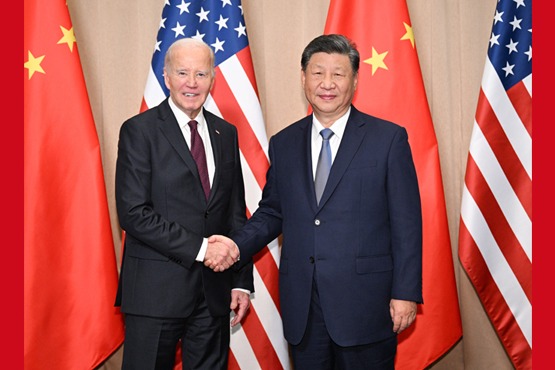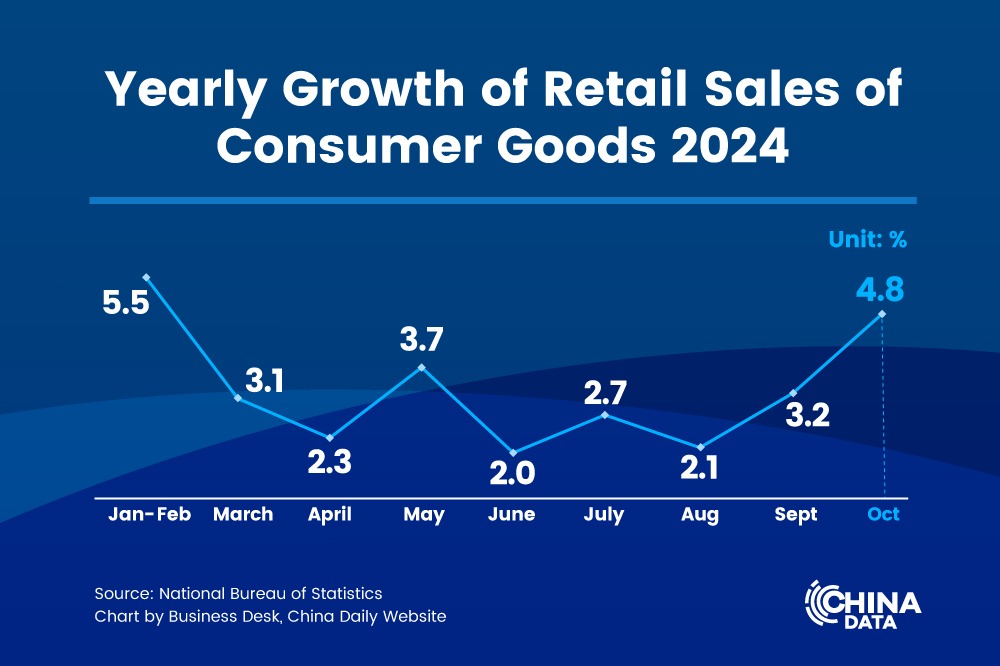Chinese e-commerce giants make their way into Brazil
Cross-border online marketplaces help facilitate trade ties with Latin America

Chinese e-commerce platforms are making a beeline for Brazil to cultivate new customers and rev up sales, as cross-border online marketplaces have become an important new driving force for bolstering the growth of China's foreign trade and promoting economic and trade cooperation with Latin America.
Online discounter PDD Holdings, the parent company of Chinese e-commerce platform Pinduoduo, launched its cross-border e-commerce platform Temu in Brazil in June. This is the 70th country that Temu has entered since its debut in September 2022 in the United States, and the step is considered the most important in the company's expansion plans in the Latin American market.
To attract local consumers in Brazil, Temu is offering an array of favorable policies including shopping discounts and coupons, as well as free home delivery.
According to global research firm Statista, Brazil remains the leader in Latin America's e-commerce space. In 2023, the country's online shopping revenue amounted to nearly 186 billion Brazilian reais ($32 billion), more than double the figure in 2019.
Temu's online retail business in Latin America already covers Chile, Colombia, Peru, Mexico, Uruguay, Ecuador, Dominica and Panama. The platform offers a wide selection of merchandise, including apparel, consumer electronics, jewelry, shoes, cosmetics and baby products at competitive prices. Most of these products are shipped directly from factories or warehouses in China.
Chen Lei, chairman and co-chief executive officer of PDD, said the company hopes to leverage the supply chain capacity it has accumulated over the years to create a new channel that enables consumers in different countries and regions to directly purchase products from factories, providing more flexible and personalized supply chains and more cost-effective shopping experiences.
Online fast-fashion retailer Shein has been investing in Brazilian garment manufacturers to support local manufacturing and enhance competitiveness. Founded in Guangzhou, Guangdong province, Shein is known for its affordable and large selection of fashionable clothing and accessories — features that allow it to gain traction among overseas shoppers.
The company has announced that it will initially invest $150 million to establish a network with thousands of textile manufacturers in Brazil, which is expected to become a manufacturing and export hub for the rest of Latin America. It plans to partner with 2,000 local manufacturers, creating around 100,000 new jobs over the next three years.
The investment will be used to provide tools and training in factories to upgrade traditional operations to match Shein's on-demand production model. This will enable local manufacturers to better manage orders, reduce waste and lower excess inventory, the company said.
"The key to our growth strategy is leveraging our global scale and operational excellence to support and contribute to local economies and ecosystems," said Marcelo Claure, chairman of Shein in Latin America.
With growing consumer demand, the company saw the opportunity to localize more of the supply chain to benefit consumers, small businesses and the wider economy, he said.
By the end of 2026, local manufacturers and vendors are expected to account for almost 85 percent of all transactions made in Brazil, according to Shein. The company also announced the launch of a local marketplace with third-party Brazilian sellers supporting small and medium-sized entrepreneurs.
Felipe Feistler, general manager of Shein Brazil, said the country is an important market for the company, which is committed to continuing its support for Brazil's economic growth and success.
"Our goal is to support Brazilian manufacturers and suppliers so that they can increase their growth and reach within the region, as well as act as a building block for future global opportunities," he added.
Market consultancy Mordor Intelligence predicts that the size of Brazil's e-commerce market will reach $52.87 billion in 2024, and stand at $125.68 billion in 2029, with a compound annual growth rate of 18.91 percent between 2024 and 2029.
Younger generations are increasingly comfortable with online shopping and are driving e-commerce growth in Brazil, while the adoption of contactless payment and the increasing penetration of internet and smartphone use have significantly influenced the development of the e-commerce market, it noted.
Chen Tao, an analyst at Beijing-based internet consultancy Analysys, said the Brazilian e-commerce market is witnessing robust growth and has become a leading player in Latin America's digital commerce landscape.
"Price, quality and service are the most important factors consumers consider when buying products, and cost-effective commodities have shown obvious advantages amid the downward pressure the global economy is facing," he said.
Looking ahead, the competition among cross-border e-commerce platforms will be focused on supply chains, Chen said, adding that for Shein and Temu, one of their core competitiveness factors lies in products that offer competitive prices and fast delivery services, which are again highly dependent on the establishment of efficient supply chains.
Cui Lili, director of Shanghai University of Finance and Economics' Institute of E-commerce, said that Chinese online retailers who are making inroads into overseas e-commerce markets should quickly capture demand in overseas markets, learn more about relevant laws, regulations and quality standards in these countries, and adjust supply chains to make products that meet local requirements.




































